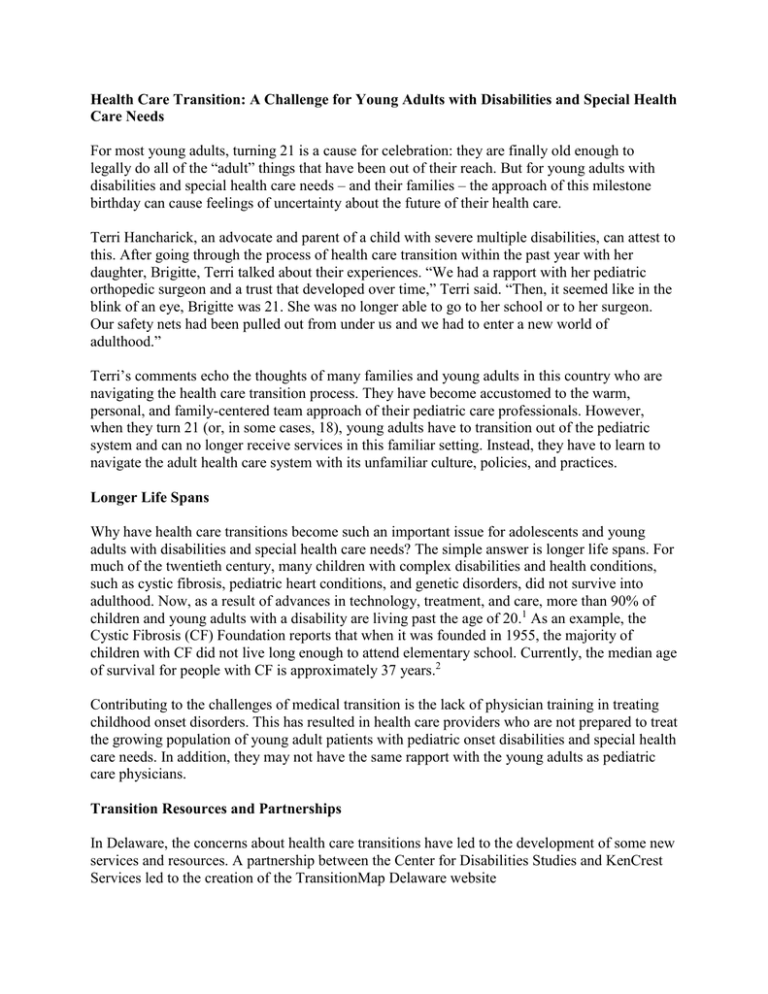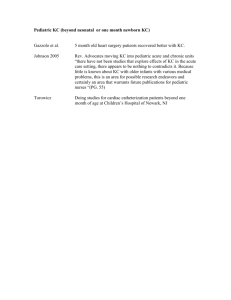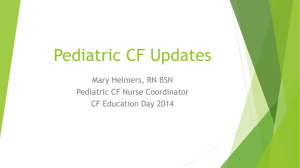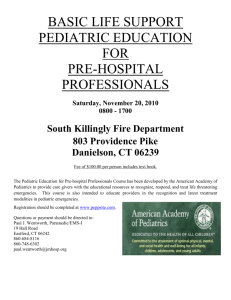Health Care Transition: A Challenge for Young Adults with Disabilities... Care Needs
advertisement

Health Care Transition: A Challenge for Young Adults with Disabilities and Special Health Care Needs For most young adults, turning 21 is a cause for celebration: they are finally old enough to legally do all of the “adult” things that have been out of their reach. But for young adults with disabilities and special health care needs – and their families – the approach of this milestone birthday can cause feelings of uncertainty about the future of their health care. Terri Hancharick, an advocate and parent of a child with severe multiple disabilities, can attest to this. After going through the process of health care transition within the past year with her daughter, Brigitte, Terri talked about their experiences. “We had a rapport with her pediatric orthopedic surgeon and a trust that developed over time,” Terri said. “Then, it seemed like in the blink of an eye, Brigitte was 21. She was no longer able to go to her school or to her surgeon. Our safety nets had been pulled out from under us and we had to enter a new world of adulthood.” Terri’s comments echo the thoughts of many families and young adults in this country who are navigating the health care transition process. They have become accustomed to the warm, personal, and family-centered team approach of their pediatric care professionals. However, when they turn 21 (or, in some cases, 18), young adults have to transition out of the pediatric system and can no longer receive services in this familiar setting. Instead, they have to learn to navigate the adult health care system with its unfamiliar culture, policies, and practices. Longer Life Spans Why have health care transitions become such an important issue for adolescents and young adults with disabilities and special health care needs? The simple answer is longer life spans. For much of the twentieth century, many children with complex disabilities and health conditions, such as cystic fibrosis, pediatric heart conditions, and genetic disorders, did not survive into adulthood. Now, as a result of advances in technology, treatment, and care, more than 90% of children and young adults with a disability are living past the age of 20.1 As an example, the Cystic Fibrosis (CF) Foundation reports that when it was founded in 1955, the majority of children with CF did not live long enough to attend elementary school. Currently, the median age of survival for people with CF is approximately 37 years.2 Contributing to the challenges of medical transition is the lack of physician training in treating childhood onset disorders. This has resulted in health care providers who are not prepared to treat the growing population of young adult patients with pediatric onset disabilities and special health care needs. In addition, they may not have the same rapport with the young adults as pediatric care physicians. Transition Resources and Partnerships In Delaware, the concerns about health care transitions have led to the development of some new services and resources. A partnership between the Center for Disabilities Studies and KenCrest Services led to the creation of the TransitionMap Delaware website (www.transitionmapde.org). The medical section of this website provides access to transition booklets and checklists for families and patients, a database of accessible medical offices throughout the state, and other resources. The Delaware Family Voices® Family to Family Health Information Center opened at CDS in June 2008 to serve as a resource and provide help to families new to the world of children with disabilities, chronic illnesses, and physical or mental health conditions (see page 3). At Nemours/Alfred I. duPont Hospital for Children (AIDHC), a transition committee composed of physicians, parents, and other medical professionals has been meeting regularly for several years to discuss the transition gap in medical services. Last year, the hospital established the Transition of Care project with a full-time social work position and a part-time physician position. Cory Nourie, the Patient Transition Social Work Coordinator, describes it as an exciting new opportunity to improve health care transitions for pediatric patients. Cory works with Dr. Rita Meek, a pediatric oncologist and former Medical Director of AIDHC, to help facilitate conversations and opportunities with patients, families, and doctors. They also identify gaps in the services provided by the adult health care community and find adult providers who are willing to build partnerships. Transition of Care has helped facilitate transition partnerships with Christiana Care Health Systems (CCHS) in cystic fibrosis, cardiology, and oncology programs. Further partnerships are being explored within primary care and endocrinology. These partnerships are opening new doors for many patients and families in the area of health care transitions. However, there is still much work to be done. For example, points out Cory, transition preparation should begin early in adolescence, not right before a young adult is going to be discharged from pediatric services. “By starting conversations at age 13 about what the young adult wants for his future, as well as supporting his parents to encourage this self-direction, young adults experience less shock as they transition into services in the adult world,” Cory says, adding, “In seeking out an adult provider before it’s a necessity, families experience a continuity of care that they and the pediatric physicians are more comfortable with.” For more information on Transition of Care, contact Cory Nourie at 302.651.4812 or cnourie@nemours.org. 1 Blum, R. W. (1995). Transition to adult health care: Setting the stage. Journal of Adolescent Health, 17, 3-5. 2. Living with cystic fibrosis: Care center network. (2008), www.cff.org/LivingWithCF/CareCenterNetwork.


